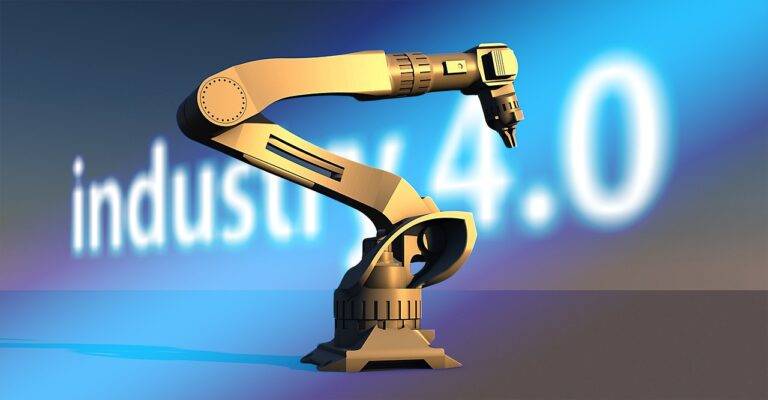How Machine Learning is Transforming Industries
Machine learning has revolutionized the way industries operate, allowing businesses to harness the power of data to make informed decisions and drive innovation. From healthcare to finance to transportation, machine learning is transforming industries in ways we never thought possible. In this article, we will explore how machine learning is reshaping various sectors and the impact it has on businesses.
Healthcare
One of the most significant impacts of machine learning in healthcare is in diagnostics. Machine learning algorithms can analyze medical images, such as X-rays and MRIs, to detect anomalies and diseases with greater accuracy than human doctors. This has the potential to improve patient outcomes and reduce misdiagnoses. Additionally, machine learning can predict patient outcomes based on data from electronic health records, enabling healthcare providers to make more informed treatment decisions.
Finance
In the finance industry, machine learning is transforming how companies manage risk, detect fraud, and make investment decisions. Machine learning algorithms can analyze vast amounts of financial data to identify patterns and predict market trends. This can help financial institutions optimize their investment strategies and minimize risk. Machine learning is also being used to detect fraudulent activities, such as unauthorized transactions and identity theft, in real-time.
Transportation
Machine learning is reshaping the transportation industry by improving efficiency and safety. Autonomous vehicles, powered by machine learning algorithms, are becoming a reality, promising to reduce accidents and traffic congestion. Machine learning is also being used to optimize transportation routes, predict demand, and improve logistics operations. This can lead to cost savings and better customer service in the transportation sector.
Retail
Retailers are leveraging machine learning to enhance customer experiences and drive sales. Machine learning algorithms can analyze customer data to personalize marketing campaigns and recommendations, leading to higher conversion rates. Retailers can also use machine learning to optimize inventory management, pricing strategies, and supply chain operations. This can help retailers stay competitive in an increasingly digital marketplace.
Manufacturing
In the manufacturing sector, machine learning is revolutionizing production processes and quality control. Machine learning algorithms can predict equipment failures before they occur, allowing manufacturers to schedule preventive maintenance and avoid costly downtime. Machine learning is also being used to analyze sensor data and optimize production workflows, leading to increased efficiency and product quality.
Energy
Machine learning is transforming the energy industry by enabling better energy management and resource allocation. Machine learning algorithms can analyze data from smart meters and sensors to optimize energy consumption and reduce costs. Machine learning is also being used to predict energy demand and improve grid stability. This can help the energy sector transition to a more sustainable and efficient future.
Conclusion
Machine learning is reshaping industries across the board, from healthcare to finance to transportation. Businesses that embrace machine learning technology stand to gain a competitive edge, improve customer experiences, and drive innovation. As machine learning continues to evolve, we can expect to see even more transformative impacts on industries in the coming years.
FAQs
What is machine learning?
Machine learning is a subset of artificial intelligence that enables computers to learn from data and make predictions without being explicitly programmed. Machine learning algorithms can analyze data, identify patterns, and make decisions based on the information they receive.
How is machine learning different from traditional programming?
In traditional programming, developers write code to instruct computers on how to perform specific tasks. In contrast, machine learning algorithms learn from data to make decisions and predictions without explicit instructions. This allows machine learning models to adapt to new information and improve over time.
What industries can benefit from machine learning?
Machine learning has applications in a wide range of industries, including healthcare, finance, transportation, retail, manufacturing, and energy. Businesses in these sectors can benefit from machine learning technology to improve operations, reduce costs, and drive innovation.
How can businesses implement machine learning?
Businesses can implement machine learning by collecting and analyzing data, training machine learning models, and deploying them in their operations. It is essential for businesses to have a clear understanding of their goals and objectives before integrating machine learning technology into their processes.
What are the challenges of implementing machine learning in industries?
Some of the challenges of implementing machine learning in industries include data quality issues, privacy concerns, and the need for specialized skills. Businesses must ensure that they have access to high-quality data, comply with data protection regulations, and invest in training their staff to work with machine learning technology effectively.
Overall, machine learning is transforming industries in remarkable ways, bringing with it the promise of increased efficiency, improved decision-making, and enhanced customer experiences. As businesses continue to adopt machine learning technology, we can expect to see even more transformative impacts across a wide range of sectors.





